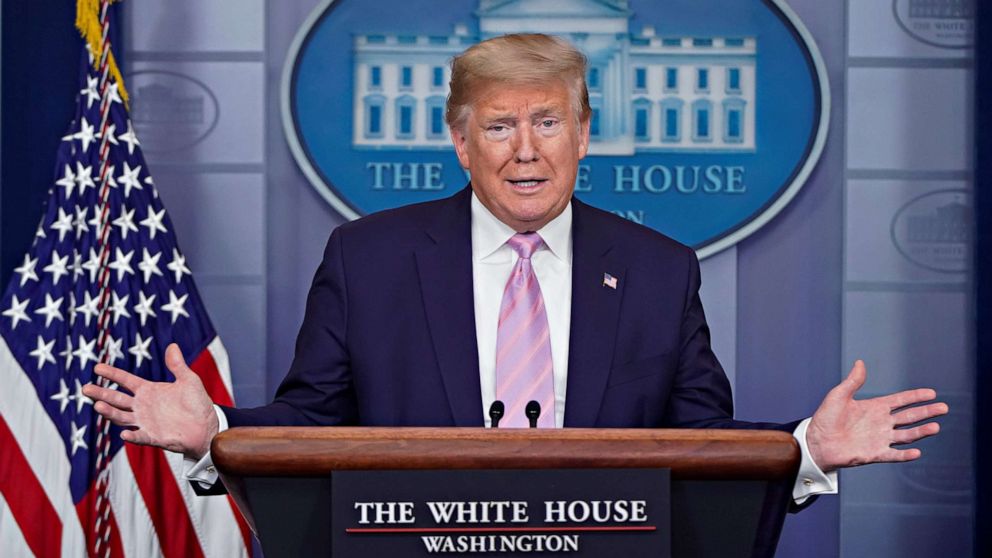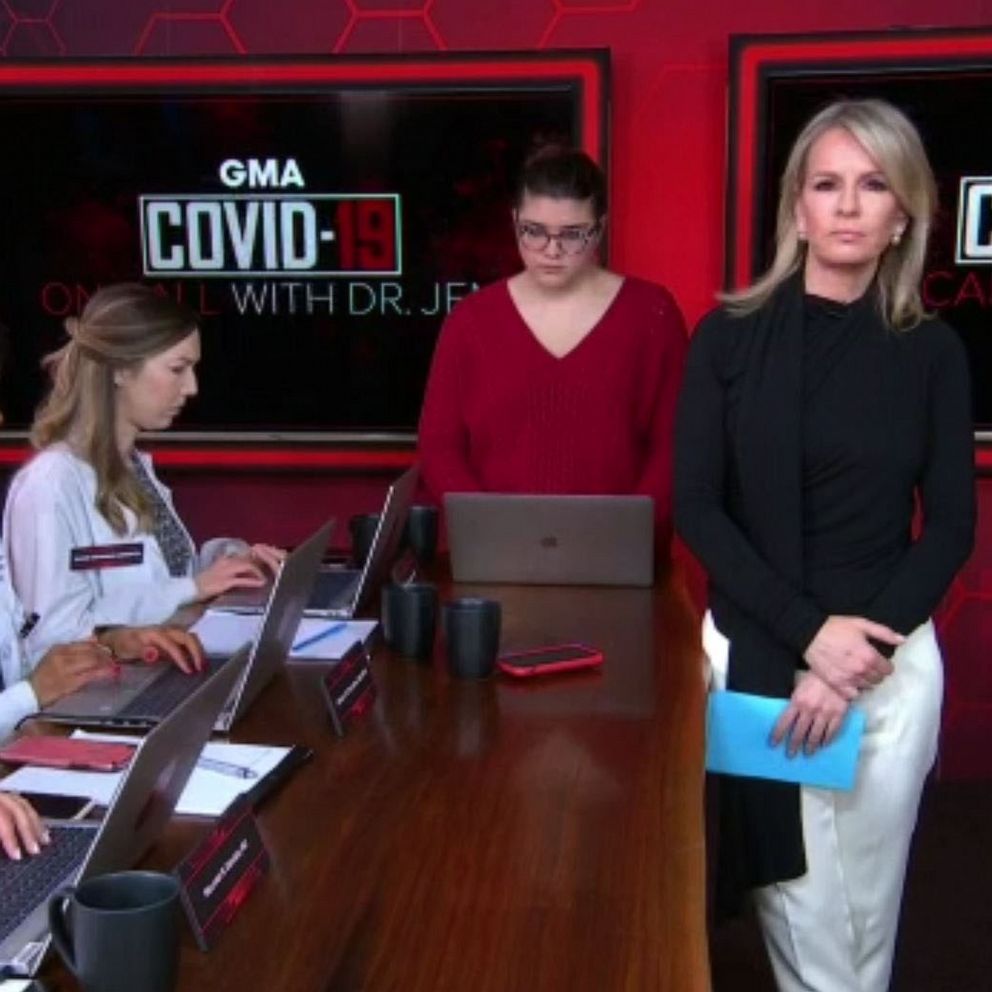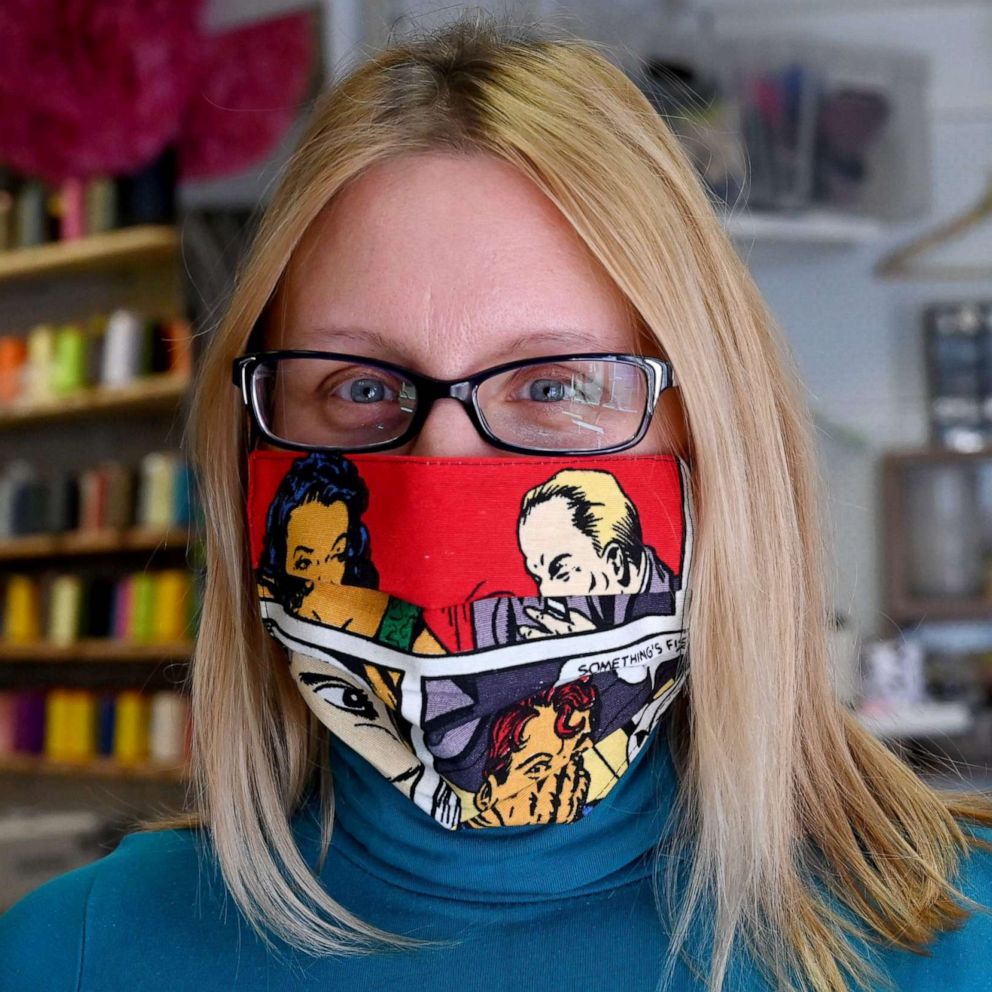Trump discusses opening the country as coronavirus peak approaches
President Donald Trump pushed to reopen the country Saturday, despite warning Americans "it's not going to be a good-looking situation" as the number of deaths approach their peak in the coming days while talking at a briefing with the White House coronavirus task force.
The president also responded to questions about a tweet that suggested creating another White House coronavirus task force that would focus on the economy and reopening the country, he said that it is something he is thinking about.
"I started by saying that, and I continue to say it. The cure cannot be worse than the problem itself. We've got to get our country open," Trump said.
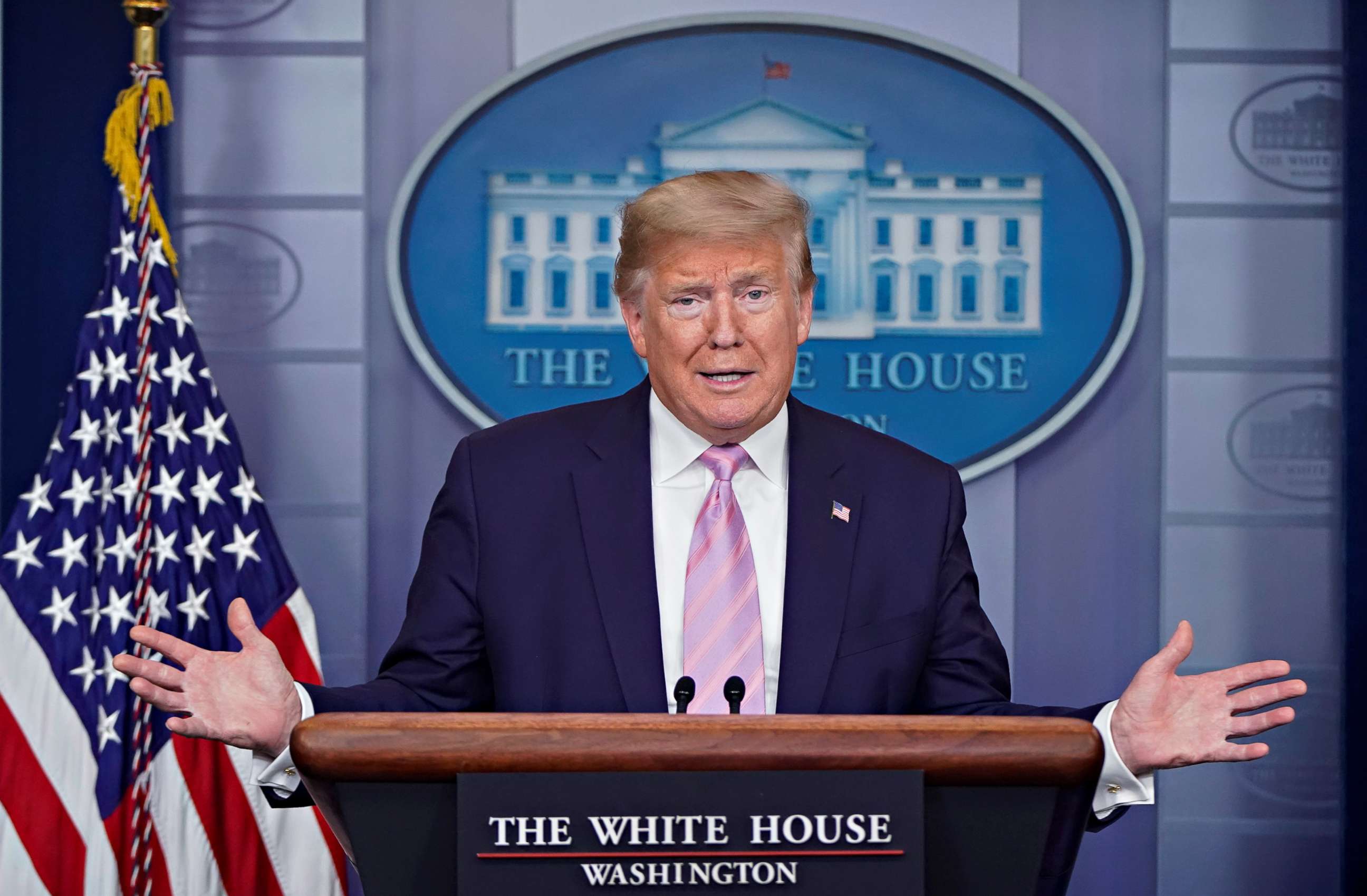
The president discussed a Saturday morning call he had with commissioners of most of the major sports to discuss the effects of coronavirus to the industry, emphasizing that he wants fans "back in the arena" as soon as they can be.
"You know, they want to see basketball and baseball and football and hockey. They want to see their sports. They want to go out onto the golf courses and breathe nice clean, beautiful fresh air," Trump said. "No, I can't tell you a date, but I think it's going to be sooner rather than later."
Tune into ABC at 1 p.m. ET and ABC News Live at 4 p.m. ET every weekday for special coverage of the novel coronavirus with the full ABC News team, including the latest news, context and analysis.
He said that sports aren't "designed" for closures, which he said is also true of the country, emphasizing that he wants citizens to get back to work.
"It has to get open. This country was not designed to be closed," Trump said. "Think of it. We're paying people not to go to work, how about that? How does that play?"
Trump had responded to a tweet by George W. Bush's former White House press secretary Dana Perino earlier in the day saying he agreed with the idea of another task force examining how the country's economy can reopen and get back on track.
He also discussed the possibility of opening churches for Palm Sunday and Easter Sunday services.
"I brought it up before, I said maybe we could allow special for churches, maybe we could talk about it, maybe we could allow them with great separation outside on Easter Sunday. I don't know, it's something we should talk about," Trump said, while allowing he'll be watching church services on a laptop the next two weeks.
The president added on the shutdown, "We cannot let this continue," and said at some point a decision will have to be made.
"Because you know, at a certain point, you'll lose more people this way through all of the problems caused, than you will with what we're doing right now," Trump said of the lockdowns in place across most of the country. "What we're doing right now, I think is going to be very successful, but you know what? I don't know. We have a big decision to make at a certain point. OK? We have a big decision to make. We went this extra period of time, but I said it from the beginning, the cure cannot be worse than the problem itself."
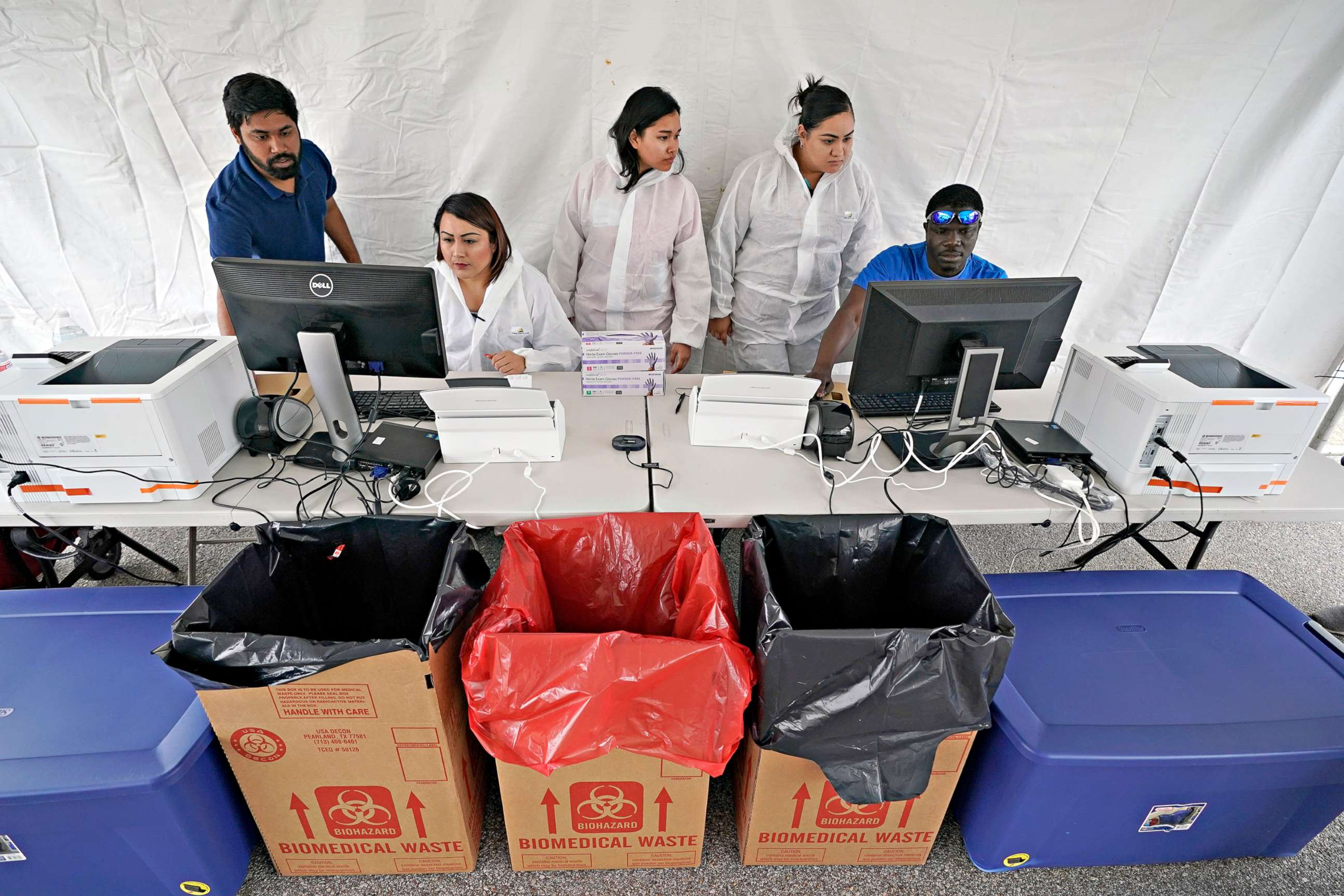
Dr. Anthony Fauci, the director of the National Institute of Allergy and Infectious Diseases and a task force member, discussed the risks of opening the country too early, including a resurgence of the virus, saying that there have to be mechanisms in place.
"When you get it down, you need to make sure it doesn't resurge," Fauci said. "That will require the ability to test, to identify, to isolate and to do contact tracing. That's what we have to have in place and hopefully we will at the time that we then pull back."
"As we end this week and we go into next week, you will be seeing -- and we should not be surprised, because the kinetics of how this virus works -- is that we're going to be seeing that there are going to be deaths that are going to continue to go up," he said.
Trump offered some criticism for governors from some states he said are asking the federal government for more ventilators and medical supplies than they need, making it difficult to prioritize where to send medical supplies.
"Areas in the country that are not experiencing large scale infections are requesting supplies beyond what their present circumstances require, and we talk to them and we tell them and we explain it and for the most part, they're good with it. We think we're right," Trump said.
Trump said he will hold another call with many of the nation's governors on Monday.
Trump said he thinks some states are increasing their requests out of "fear," but he said that he wants to make sure there are enough resources where there is greater need.
"When the brunt of it comes, we want to be ready to hit the area that needs it. We don't want to have spent everything in one area and they don't need it there, to anywhere near the extent," Trump said.
He also said 1,000 medical military personnel will be heading to New York City, where more than 2,500 people have died.
The president said that personnel includes doctors, nurses, respiratory specialists and other support staff. He said that they would consider adding to that thousand personnel, as well.
What to know about the novel coronavirus:
-
- How it started and how to protect yourself: coronavirus explained
- What to do if you have symptoms: coronavirus symptoms
- Tracking the spread in the US and worldwide: coronavirus map
Trump also talked about his use of the Defense Production Act, saying he would increase the use of it if needed as "a retaliation" if needs for supplies aren't met and offered specific criticism of 3M. This comes after he announced Friday that he would use the DPA to prevent the export of necessary medical supplies out of the United States.
Trump was briefly waylaid during the press conference when asked about the firing of the inspector general of the Intelligence Community, Michael Atkinson, which has come under great scrutiny from Democrats.
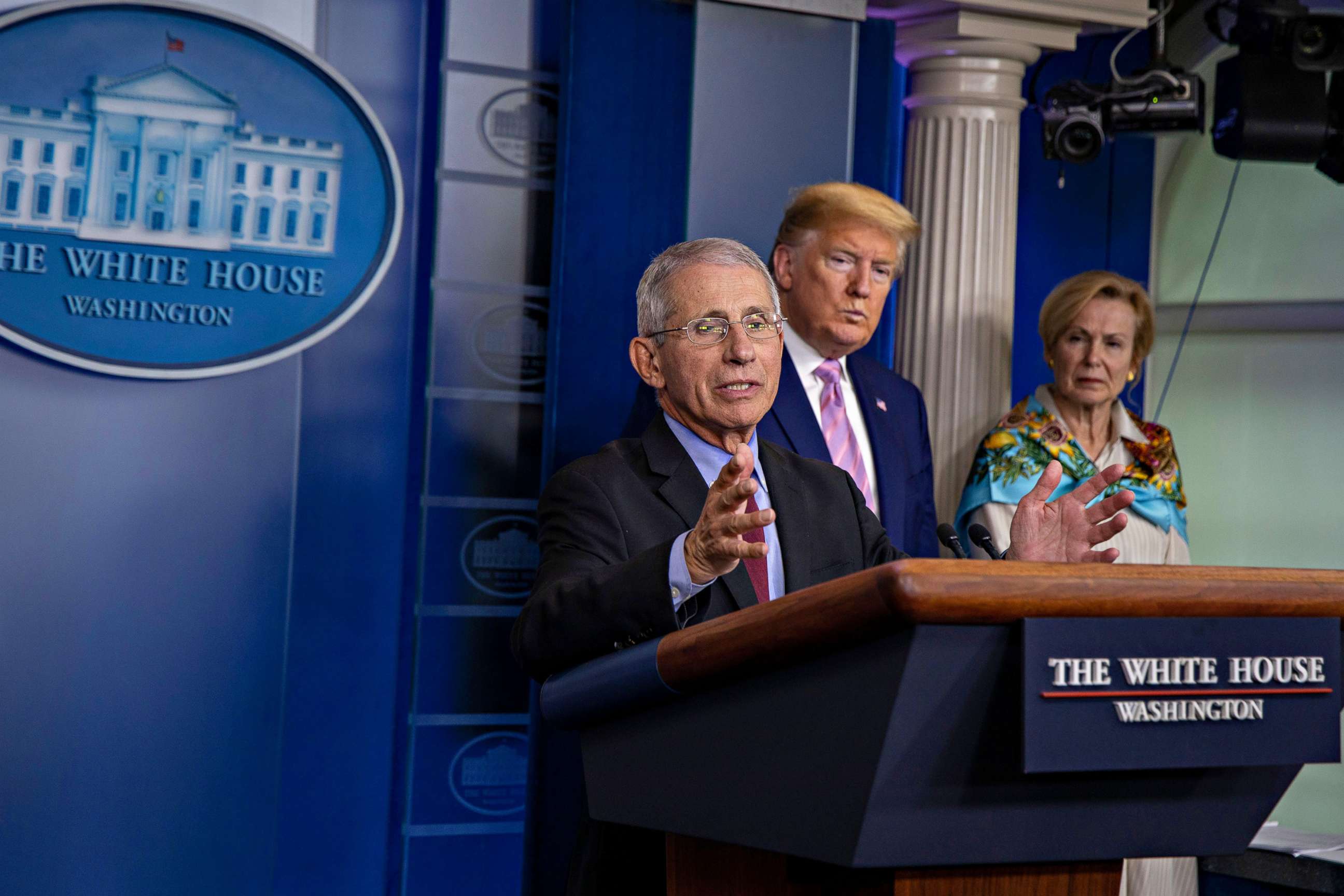
Atkinson's communications to Congress about a whistleblower complaint helped initiate the Ukraine impeachment inquiry against the president.
"I thought he did a terrible job, absolutely terrible. He took a whistleblower report which turned out to be a fake report, it was fake, it was totally wrong. It was about my conversation with the president of Ukraine," Trump said. "He took a fake report, and he brought it to Congress."
ABC News' Allison Pecorin and Elizabeth Thomas contributed to this report.
